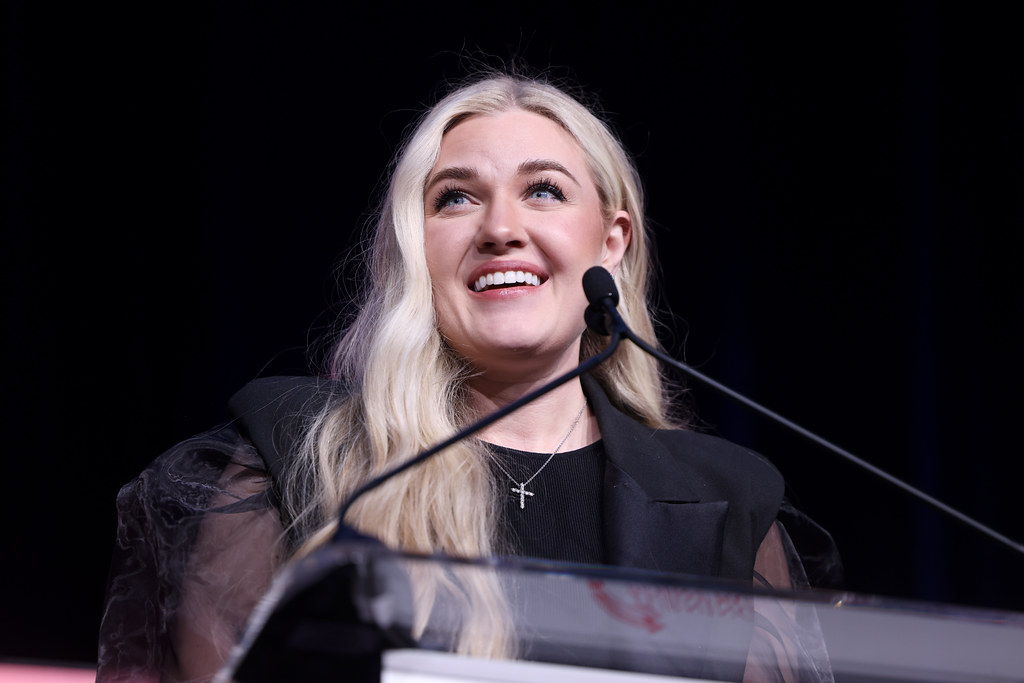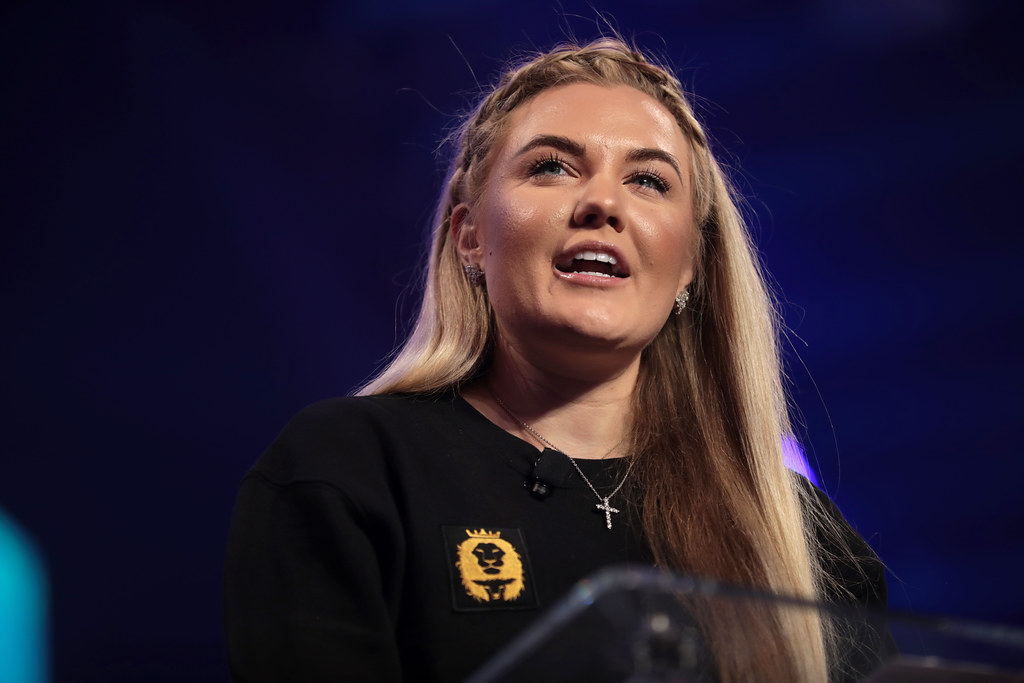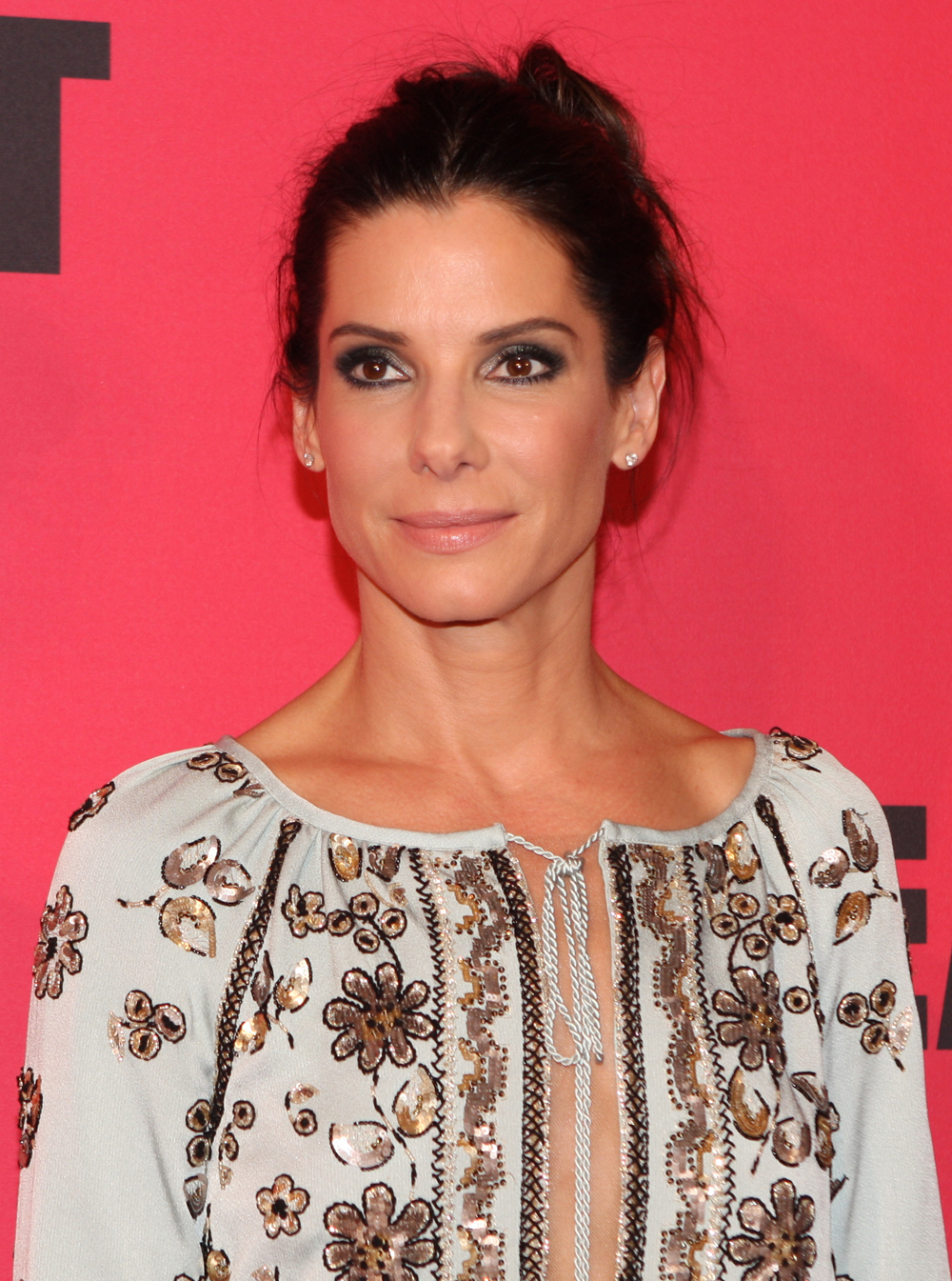
In the shadow of an unimaginable tragedy, Erika Kirk, widow of the conservative activist Charlie Kirk, has emerged not with a cry for vengeance, but with a testament to profound faith and an extraordinary act of forgiveness. Her powerful address at her husband’s memorial service in Glendale, Arizona, offered a rare glimpse into the depths of personal sorrow intertwined with unwavering spiritual conviction, resonating far beyond the tens of thousands gathered at State Farm Stadium and the millions watching online.
Her words, delivered with a mix of raw emotion and steadfast resolve, have etched a new chapter in the narrative of grief and resilience. As she recounted the devastating moments following Charlie Kirk’s assassination at Utah Valley University, she also articulated a vision of love and redemption that directly challenged the conventional response to such brutal loss. This narrative, centered on her husband’s legacy and her own steadfast belief, offers a compelling exploration of how one navigates the unthinkable while holding firm to deeply held principles.
Erika Kirk’s eulogy was not merely a remembrance; it was a profound declaration of intent. It laid bare the immediate impact of her husband’s death, revealing intimate details of her personal anguish and the solace she found in her faith. More significantly, it highlighted her commitment to not only preserve Charlie Kirk’s mission but also to amplify it, transforming personal heartbreak into a renewed call for spiritual and societal change.

1. **The Unthinkable Moment: Confronting Her Husband’s Murdered Body**The immediate aftermath of Charlie Kirk’s death plunged Erika into a harrowing reality, one she described as “unthinkable.” Arriving at a Utah hospital on September 10th, she was faced with the devastating task of looking “directly at my husband’s murdered body.” This moment, as she recalled, was an overwhelming assault on her senses and emotions, leaving an indelible mark on her soul.
She articulated the visceral shock and horror that gripped her, confessing to feeling “a level of heartache that I didn’t even know existed.” This raw honesty allowed those listening to truly grasp the immensity of her personal suffering. Her account was not softened by euphemism; it was a direct confrontation with the brutal reality of her husband’s violent end, a testament to the depth of her immediate, profound grief.
Yet, even in this moment of unbearable sorrow, Erika Kirk noted the emergence of something else, an unexpected layer to her experience. This additional perception, layered onto the shock and horror, began to hint at the profound spiritual lens through which she would process the tragedy. It was a detail that would later become a source of comfort and a testament to her faith in a divine presence amidst chaos.

2. **A Glimpse of Peace: Charlie Kirk’s Faint Smile in Death**Amidst the devastation of witnessing her husband’s body, Erika Kirk observed a detail that offered a profound sense of mercy and peace: “Even in death, I could see the man that I love.” She specifically noted a poignant detail—the “faintest smile” on his lips. This image, she explained, conveyed a powerful message to her about the nature of his final moments.
“It revealed to me a great mercy from God in this tragedy,” she said, recounting how this subtle expression assured her that “Charlie didn’t suffer.” This was corroborated by medical professionals; the doctor informed her that his death was “something so instant that even if Charlie had been shot in the operating room itself, nothing could have been done.” This medical confirmation underscored the instantaneous nature of his passing, alleviating fears of prolonged pain or terror.
Her observation provided an unexpected solace, transforming a moment of profound horror into one imbued with divine compassion. It suggested that in his final moments, while doing what he loved — “arguing and debating on campus, fighting for the gospel and truth in front of a big crowd” — Charlie Kirk had transitioned instantaneously, without fear or agony, into what she described as seeing his “Savior in paradise.” This belief became a cornerstone for her processing of his death, offering a glimpse of peace where only despair might be expected.

3. **Erika Kirk’s Profound Act of Forgiveness**Perhaps the most striking and moving aspect of Erika Kirk’s address was her unequivocal declaration of forgiveness for Tyler Robinson, the 22-year-old suspect accused of killing her husband. Standing firm in her Christian faith, she stated, “I forgive him because it was what Christ did and it is what Charlie would do.” This sentiment, delivered amidst her own overwhelming grief, earned a standing ovation from the assembled crowd.
Her philosophy, deeply rooted in the Gospel, rejects the cycle of retribution. “The answer to hate is not hate. The answer we know from the Gospel is love,” she asserted. This principle extended to her refusal to seek the death penalty for Robinson, explaining to The New York Times, “I do not want that man’s blood on my ledger. Because when I get to heaven, and Jesus is like: ‘Uh, eye for an eye? Is that how we do it?’ And that keeps me from being in heaven, from being with Charlie?”
This act of forgiveness is not passive; it is an active, conscious choice to embody the teachings of Christ and her husband’s own values. It transforms a moment of potential rage into a powerful demonstration of spiritual fortitude, signaling a rejection of worldly vengeance in favor of a higher, divine justice. Her statement served as a poignant example of grace under unimaginable pressure, offering a counter-narrative to the prevailing calls for punitive justice.
Read more about: Anatomy of an Apology: Deconstructing TMZ’s Response to ‘Tone Deaf Laughter’ Amid Charlie Kirk Shooting Coverage

4. **Charlie Kirk’s Mission: Saving Young Men, Including His Assassin**Erika Kirk’s act of forgiveness was inextricably linked to her understanding of her husband’s life’s mission. She revealed that Charlie Kirk was deeply passionate about guiding young men who felt adrift, lost, or lacked direction. In a poignant connection, she stated, “My husband, truly, he wanted to save young men, just like the one who took his life.” This heartbreaking parallel imbued her forgiveness with even greater meaning.
Charlie Kirk’s work with Turning Point USA, she explained, was fundamentally aimed at reaching “the lost boys of the West — the young men who feel like they have no direction, no purpose, no faith, and no reason to live.” He sought to steer them away from distractions and the corrosive grip of “resentment, anger, and hate.” His campus engagements were designed to “show them a better path — a better life that was right there for the taking.”
This insight into his life’s purpose framed her forgiveness not as a mere emotional response, but as a direct fulfillment of Charlie’s own fervent desire. It suggests that even in his death, the principles he espoused — of offering guidance and an alternative path to those struggling — were to be upheld. The man who ended his life, she indicated, was precisely the kind of young man Charlie had dedicated his life to helping, making her act of forgiveness a profound extension of his own mission.

5. **The Power of Surrender: Isaiah 6:8 and God’s Will**Central to Charlie Kirk’s spiritual conviction, and now Erika’s comfort, was the Bible verse Isaiah 6:8: “Here I am, Lord. Send me.” Erika recounted how Charlie had quoted this verse at a TPUSA Faith event two years prior, a moment she vividly remembered. She had cautioned him then, telling him, “Charlie, baby, please talk to me next time before you say that statement,” acknowledging the immense power and commitment inherent in such a declaration.
“Because when you say something like that, there is so much power in that verse,” she explained. “When you say, ‘Here I am, Lord. Use me,’ God will take you up on that. And He did—with Charlie.” This reflection underscored her belief that Charlie had fully surrendered to God’s will, a surrender that culminated in his untimely death but also affirmed his lifelong dedication to his faith.
She found solace in the belief that God had accepted this “total surrender” from her husband, and then “called him to His side” eleven days prior. Through her pain, she found comfort in the words of the Lord’s Prayer: “Thy will be done.” This spiritual framework provided an understanding for the incomprehensible, transforming a random act of violence into an acceptance of divine purpose, even when that purpose was shrouded in sorrow.

6. **Usha Vance’s Timely Comfort: The ’15 Minutes’ Analogy**In the immediate days following Charlie Kirk’s death, Erika Kirk found herself on Air Force Two, returning his body to Arizona with Vice President JD Vance and his wife, Usha. During this profoundly difficult time, she confessed to Usha Vance, “Honestly, I do not know how I am going to get through this.” Usha Vance’s response, a simple yet powerful analogy, resonated deeply.
Usha Vance likened the moment to the chaotic final 15 minutes of a plane ride with children: “Things are crazy. Kids are not cooperating. Toys are flying everywhere, and everyone’s screaming. And you think to yourself, ‘I cannot wait for this flight to land.’ And it’s 15 minutes before you land.” She then offered practical, empathetic advice: “You will get through these 15 minutes—and the next 15 minutes after that.”
Erika Kirk acknowledged the profound impact of these words, stating, “Usha, I don’t think you realized it then, but those words were exactly what I needed to hear.” This conversation highlights the raw vulnerability of her grief and the unexpected sources of strength and perspective that emerged. The analogy provided a manageable framework for navigating overwhelming sorrow, breaking down an insurmountable future into discrete, conquerable moments.

7. **A Life Without Regrets: Charlie’s Unfinished, Yet Complete, Business**Despite his life being cut short, Erika Kirk asserted that Charlie Kirk “died with incomplete work, but not with unfinished business.” This distinction was central to her understanding of his legacy. She emphasized that Charlie was “ready to die,” having lived his life with an unwavering commitment to his purpose, leaving “nothing—nothing—he was putting off.”
She elaborated, explaining that for Charlie, “There was nothing too hard or too painful” and “nothing he felt like he didn’t want to do.” He lived each day to its fullest, doing “100% of what he could—every day.” This testament speaks to his profound dedication, his refusal to procrastinate on matters of faith, mission, or personal connection. He pursued his convictions with a relentless energy that left no stone unturned, no duty unfulfilled.
This perspective offered a unique lens through which to view his passing, suggesting that while his earthly endeavors might not have reached their ultimate conclusion, his personal journey and spiritual preparedness were complete. His life, though tragically brief, was lived with a sense of totality and purpose that left him without regrets. This powerful statement reframes his death not as an abrupt halt, but as a final, purposeful culmination of a life fully lived in service to his beliefs.
The profound impact of Charlie Kirk’s life, though tragically cut short, resonates deeply through his enduring vision for the American family and his unwavering commitment to nurturing young men. Erika Kirk’s subsequent addresses and actions have illuminated the foundational principles that guided her husband, revealing a legacy far grander than political activism. Her words provide a unique window into the personal convictions that fueled Charlie’s public endeavors, demonstrating how his faith shaped his worldview and his aspirations for society.
His passing, rather than silencing his message, has instead amplified it, leading to a renewed focus on the values he championed. Erika Kirk has taken up the mantle with remarkable resolve, not just preserving his memory but actively expanding his work, transforming personal sorrow into a powerful mandate for change. This second section delves into the lasting contributions Charlie made, his specific calls to action for men and women, and Erika’s fierce dedication to continuing the mission of Turning Point USA, emphasizing the critical role of dialogue, the hopeful signs of spiritual revival, and an overarching invitation to a life anchored in faith.

8. **Charlie Kirk’s Enduring Vision for Marriage and Family**Central to Charlie Kirk’s life and mission was his profound belief in the sanctity and strength of the American family. Erika Kirk revealed that “the greatest cause in Charlie’s life was trying to revive the American family,” underscoring his conviction that a robust society begins with strong, God-centered households. This was not merely a theoretical concept for him; it was a deeply lived reality within his own marriage.
He frequently spoke to young people about “God’s vision for marriage,” believing it held the key to personal fulfillment and societal health. His message conveyed that embracing this divine design could “enrich every part of their life in the same way it enriched ours,” a testament to the joy and strength he found in his own union with Erika. He desired for everyone to experience the profound contentment that he and Erika shared, affirming that their marriage was “the best thing that ever happened to me, and I know it was the best thing that ever happened to him as well.”
This vision extended beyond abstract ideals, manifesting in tangible practices within their home. Erika recounted a cherished ritual: “Every Saturday, Charlie wrote one for me, and he never missed a Saturday.” These weekly love notes were a private testament to his consistent affection and commitment, a deliberate act to keep their bond vibrant amidst his demanding schedule. They were a cornerstone of their intimate partnership, demonstrating the intentionality he brought to his most personal relationships.
In these notes, Charlie would express gratitude, share highlights from his week, and always conclude with the question, “Please let me know how I can better serve you as a husband?” This recurring inquiry profoundly illustrated his understanding of a Christian husband’s role: a leader whose primary purpose is to serve. It highlighted his commitment to continuous self-improvement within his marriage, embodying a humility and dedication that Erika found deeply empowering.
Read more about: Beyond the Spotlight: Unpacking Erika Kirk’s Surprising Reality TV Past Years Before Meeting Charlie Kirk

9. **Embracing True Manhood: Charlie’s Challenge to Men**Building upon his vision for marriage, Charlie Kirk issued a direct and powerful challenge to men everywhere: to “accept Charlie’s challenge and embrace true manhood.” This was a call to purposeful living, urging men to reclaim their roles as strong, courageous, and loving pillars within their families and communities. It was a clear departure from what he perceived as a prevailing sense of aimlessness among young men in contemporary society.
His message implored men to “be strong and courageous for your families,” emphasizing the vital need for resilience and protective leadership. He advocated for a profound and active love, instructing men to “love your wives and lead them” and to “love your children and protect them.” This framework outlined a comprehensive responsibility, encompassing both emotional and spiritual guidance within the home, positing men as the “spiritual head of your home.”
Crucially, Charlie stressed that this leadership must be worthy of emulation. He insisted, “Please be a leader worth following,” implying that authority comes with the profound responsibility of integrity and example. He redefined marital dynamics, asserting that “your wife is not your servant. Your wife is not your employee. Your wife is not your slave. She is your helper.” This highlighted a partnership rooted in mutual respect and shared purpose.
He viewed marriage not as a competition but as a unified endeavor, stating, “You are not rivals. You are one flesh—working together for the glory of God.” This perspective elevated the marital bond to a spiritual mission, where husband and wife collaborate harmoniously to achieve a divine purpose. Charlie’s challenge was thus an invitation to a life of intentional commitment, selfless service, and God-honoring leadership, inspiring men to cultivate virtues that would strengthen their families and, by extension, the nation.

10. **Erika’s Vision for Women: Virtuous Guardians of the Home**Complementing Charlie Kirk’s call to manhood, Erika Kirk offered her own profound challenge to women, encouraging them to “be virtuous” and embrace their God-given roles with strength and grace. Her words delineated a vision for womanhood rooted in biblical principles, emphasizing unique contributions to family and society. She highlighted that “our strength is found in God’s design for our role,” articulating a belief that true empowerment stems from aligning with divine purpose rather than societal expectations.
Erika identified women as “the guardians,” “the encouragers,” and “the preservers,” roles that underscore their vital influence over the spiritual and emotional landscape of their homes. She exhorted women to “guard your heart,” recognizing that “everything you do flows from it,” thereby placing immense importance on internal purity and spiritual intentionality. This internal vigilance, she implied, is the wellspring of their external impact, shaping the atmosphere and direction of their families.
For mothers, Erika’s message carried a particular weight, describing motherhood as “the single most important ministry you have.” This elevated the role of raising children to a sacred calling, underscoring its eternal significance and demanding utmost dedication. She shared personal insights into how she cultivated her home environment, particularly for Charlie, who traveled extensively for his work.
Erika meticulously ensured that their home was “his sacred landing place—away from the worries of the world.” She actively fostered an atmosphere of peace and welcome, consciously avoiding guilt-tripping him for his absences. “I always told him: ‘Home is here for you, and it’ll be ready for you,'” she explained. This intentional cultivation created a haven where Charlie desired to return, a place free from strife and full of support, embodying the collaborative and non-competitive spirit that characterized their marriage, where “there was no keeping score between us. We were a team, working together for the same mission.”

11. **A Revival Ignited: The Unforeseen Impact of Tragedy**In a profound and unexpected turn, the tragedy of Charlie Kirk’s assassination catalyzed a remarkable spiritual awakening across the nation. Erika Kirk powerfully observed that following her husband’s death, “we didn’t see violence. We didn’t see rioting. We didn’t see revolution. Instead, we saw what my husband always prayed he would see in this country. We saw revival.” This observation transformed a moment of profound sorrow into a testament to divine providence.
She recounted tangible evidence of this spiritual shift, noting that “this past week, we saw people open a Bible for the first time in a decade. We saw people pray for the first time since they were children. We saw people go to a church service for the first time in their entire lives.” These individual acts of faith collectively illustrated a widespread hunger for spiritual truth, directly linked to the aftermath of Charlie’s death. His life, and his sudden passing, served as a poignant catalyst for introspection and a return to foundational beliefs.
Drawing from Charlie’s personal reflections, Erika shared a significant insight he had journaled: “‘Every time you make a decision, it puts a mark on your soul.'” This profound statement underscored the cumulative impact of choices on one’s spiritual trajectory. She welcomed those who had begun this journey, saying, “To those of you out there who just made that decision and took the first step toward a spiritual life—I say thank you, and welcome.” Her words offered encouragement and affirmation to new believers, recognizing the courage required to embark on a path of faith.
Erika also issued a call to existing believers, instructing them, “All of you—those who are already believers—it is your job to shepherd these people. Do not take that lightly. Water the seed of their faith. Protect it. And help it grow.” This underscored the communal responsibility of nurturing nascent faith. She emphasized Charlie’s consistent practice of sending Bible verses daily, recognizing that “faith was a habit. The more you live it, the more it grows.” This tragic event, therefore, became a powerful and unexpected moment of spiritual renewal, fulfilling Charlie’s heartfelt prayers for his country in a way no one could have anticipated.

12. **Erika Kirk: The New CEO, Amplifying a Legacy**In a powerful demonstration of her unwavering commitment, Erika Kirk announced her acceptance of the role as the new CEO of Turning Point USA, the organization her husband founded. This decision marked a pivotal moment, signaling her resolve not just to mourn Charlie, but to actively perpetuate and expand his life’s work. She stated, “I am tremendously honored to be the new CEO of Turning Point USA. I do not take that lightly,” conveying the gravity and dedication she brings to this leadership position.
Erika articulated a seamless continuity of purpose, declaring, “Charlie and I were united in purpose. His passion was my passion. And now, his mission is my mission.” This statement underscores a shared vision that transcended individual roles, transforming her personal grief into a renewed and amplified commitment to the ideals Charlie championed. It assured supporters that the organization would remain true to its founding principles, guided by the very essence of Charlie’s original inspiration.
Her ambition for Turning Point USA is not merely to maintain its current trajectory but to accelerate its growth and influence exponentially. She vowed, “Everything that Turning Point USA built through Charlie’s vision and hard work—we will make ten times greater through the power of his memory.” This bold declaration speaks to a future of aggressive expansion, aiming to magnify the organization’s reach and impact, ensuring Charlie’s legacy resonates more widely than ever before. It is a testament to the belief that his memory will serve as a powerful motivating force for sustained growth and innovation.
This expansion includes concrete plans for growth: “Chapters will grow. Thousands of new ones will be created. TPUSA Faith will add thousands of new pastors and congregations.” These initiatives highlight a strategic vision to broaden the organization’s footprint, cultivate new leaders, and deepen its spiritual engagement across the nation. Erika Kirk’s leadership promises a vibrant and dynamic future for Turning Point USA, transforming her personal sorrow into a formidable engine for Charlie’s enduring mission.

13. **Upholding Dialogue and the First Amendment**A cornerstone of Charlie Kirk’s methodology and a key aspect of Turning Point USA’s future under Erika’s leadership is the steadfast commitment to open dialogue and the defense of the First Amendment. Erika affirmed that despite the tragic circumstances, “campus events will continue. We will continue to hold debates and dialogue.” This unwavering stance emphasizes the critical importance of intellectual exchange, even in environments that may be hostile or challenging.
She articulated the profound significance of free expression, declaring, “The First Amendment of our Constitution is the most human amendment. We are naturally talking beings, naturally believing beings—and the First Amendment protects our right to do both.” This perspective frames the right to speak and believe not merely as a legal protection but as an inherent aspect of human nature, essential for a flourishing society. It reinforces the idea that robust debate and the free exchange of ideas are fundamental to the pursuit of truth.
Erika’s address contained a powerful warning about the dangers of suppressing conversation. She asserted, “No assassin will ever stop us from standing up to defend those rights. Ever,” directly linking the violence that took her husband’s life to a breakdown in communication. She explained, “When you stop the conversation, when you stop the dialogue—this is what happens. When we lose the ability and the willingness to communicate, we get violence.” This poignant connection between censorship and conflict serves as a compelling rationale for the continued advocacy of open discussion.
Through her resolute commitment to upholding dialogue, Erika Kirk seeks to counter the very forces that led to her husband’s assassination. She advocates for an environment where ideas, even controversial ones, can be freely expressed and debated, believing that this is the only path to peace and understanding. Her pledge ensures that Turning Point USA will remain a bastion for free speech, continuing Charlie’s legacy of challenging conventional thought through reasoned discussion and debate.

14. **Charlie’s Enduring Impact: A Turning Point for America**As Erika Kirk concluded her poignant eulogy, she articulated a powerful summation of Charlie’s life, portraying it not just as an individual journey but as a catalyst for national transformation. She declared, “Charlie’s life was a turning point for this country. It was a miracle,” elevating his impact beyond mere activism to something divinely inspired. This perspective suggests that his brief but impactful existence left an indelible mark on the course of American discourse and faith.
Erika then extended an invitation, urging those listening to allow Charlie’s “miracle” to become their “turning point as well.” This call to action transformed his personal story into a universal challenge, encouraging individuals to embark on their own journeys of conviction and purpose. Her words served as a profound encouragement to embrace the values Charlie championed, translating his life’s work into a personal imperative for each listener.
Her impassioned plea outlined a clear path for living a life of meaning and impact, rooted in the principles Charlie exemplified. She urged, “Choose prayer. Choose courage. Choose beauty. Choose adventure. Choose family. Choose a life of faith.” Each choice represented a facet of Charlie’s life and legacy, guiding individuals toward a path of spiritual and personal growth. These were not mere suggestions but an earnest appeal to adopt a purposeful existence.
Ultimately, Erika’s message culminated in the most profound choice of all: “Most importantly: Choose Christ. Choose Christ.” This final, emphatic declaration underscored the spiritual core of Charlie’s legacy and her own unwavering faith, presenting the ultimate source of strength and direction. She closed with a deeply personal vow, “I love you, Charlie baby. And I will make you proud,” affirming her steadfast commitment to honor his memory by carrying forward the mission that defined his extraordinary life.
In the wake of an unimaginable loss, Erika Kirk has emerged as a beacon of faith, forgiveness, and formidable resolve. Her powerful testament not only memorializes a conservative icon but ignites a renewed call to action for all who believe in the power of faith, family, and freedom. The legacy of Charlie Kirk, far from being extinguished, is now being meticulously and passionately carried forward, promising to echo louder and reach farther through the unwavering dedication of his wife and the movement he inspired.



